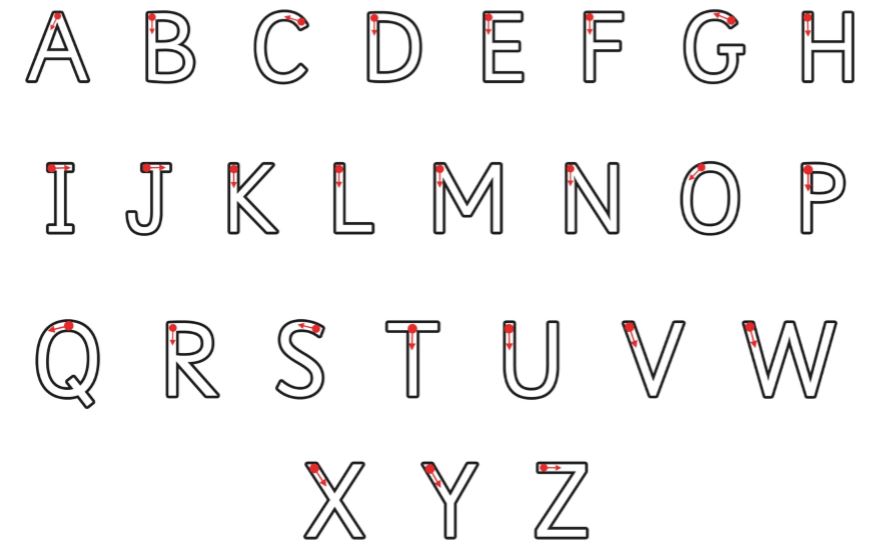25 September 2020
|
double up for a short vowel sound |
| This week’s spelling task is an investigation! Your task is to find as many words as possible where you would need to double up for a short vowel sound. For example: appreciate, embarrass or occupy. You might also need to double up if you are adding a suffix. For example: pop > popping or commit > committing.
You might find the words when you’re out and about, on a cereal box at home or maybe in your reading book. In class, we will find out who has the longest word, who has the most complex and who found theirs in the most interesting place! |
18 September 2020
Spelling
| In spelling lessons next week, we’ll be recapping and practising the long vowel i phoneme (sound).
This sound can be written in lots of different ways. These are called graphemes. For example: polite reply replied In lessons, the children will be exploring these alternate graphemes in lessons.
|
||||||||||||||||||
18 September 2020
Next week, we’ll be learning about the j sound at the start and in the middle of a word. It is usually spelt with a g before e, i and y and with a j before a, o and u.
| gem |
| giant |
| magic |
| energy |
| jacket |
| jar |
| join |
| adjust |
18 September 2020
This week, we have been learning about capital letters – how to write them and when to use them. For this week’s spellings, we would like the children to practise writing the letters of the alphabet as capital letters. The children will be tested on a selection of the capital letters next Friday.
A B C D E F G H I J K L M N O P Q R S T U V W X Y Z
To support your child with their letter formation, please refer to the letters below. We start these letters at the top.

18 September 2020
|
homophones |
| This week’s spelling list is formed using our Must Do homophones for Year 5/6. Your task this week is to write your own sentences that contain these homophones. They could be about something we’ve been learning about, something about you or your own ideas entirely. For an extra challenge, include some expanded noun phrases, conjunctions and varied openers, just like we’ve done in class. |
witch, which, where, wear, were, of*, off
*Make sure to use should have if you’re saying something like: “He should have scored that!”
11 September 2020
Spelling
In spelling lessons next week, we’ll be recapping and practising the long vowel ee phoneme (sound). This sound can be written in lots of different ways (graphemes) For example: money, Pete, Leeds, busy
In lessons, the children will be exploring these alternate graphemes.
Here are the specific words for the children to practise at home:
| believe |
| breathe |
| complete |
| appear |
| extreme |
| increase |
| quickly |
| busy |
| people |
| chimney |
11 September 2020
Spelling
In spelling lessons next week, we’ll be recapping and practising the long vowel ee phoneme (sound). This sound can be written in lots of different ways (graphemes) For example: money, Pete, Leeds, busy
In lessons, the children will be exploring these alternate graphemes.
Here are the specific words for the children to practise at home:
| believe |
| breathe |
| complete |
| appear |
| extreme |
| increase |
| quickly |
| busy |
| people |
| chimney |
Times tables
Your child’s login details for Times Table Rock Stars is stuck intheir homework books. Please login and practise regularly. I haven’t set specific times tables this week as I want to get a good idea of what times tables your child is confident with and which they need support with. If they’re struggling on any, that’s okay as there’s still a few tables they haven’t been taught yet.
11 September 2020
This week’s spellings relate to the ‘j‘ sound at the end of a word. They will be tested on Friday 18 September 2020.
The j sound is spelled -dge straight after short vowel sounds (eg badge – the ‘a’ is making a short sound) and -ge (eg change – the ‘a’ is making a longer ‘ay’ sound) after all other sounds.
| badge |
| edge |
| bridge |
| fudge |
| charge |
| huge |
| change |
| village |
Take a look at our spelling guide for some suggested methods for learning these spellings.
11 September 2020
Our first week of spellings in Year One focuses on your child’s first name and surname. The children have been practising this in class during the week.
Next Friday, your child will be tested on writing their full name accurately including capital letters.
The children could use the back of their homework book for spelling practice.